Photographs: Dipak Chakroborty Indrani Roy in Malda
Unfortunately, Malda Medical College and Hospital, where dozens of children have lost their lives due to alleged negligence, is not the only factor crippling the healthcare situation in this West Bengal district. Indrani Roy digs deep into this multi-layered crisis.
This is the concluding part of the three-part series.
Read Part I: Why are children dying by the dozen in Bengal's Malda district?
Part II : 'I'll never forgive the doctors of Malda Hospital'
The condition of the Malda Medical College and Hospital and those of the patients' kin shocked us; our hearts cried with helplessness.
We were desperate to unravel the root of the problem and for that purpose, we spoke to a few residents, health workers and non-government organisations' staff in and around Malda's Ramkrishna Pally, the place where we stayed.
And here are the common reasons that surfaced from the conversations that we had:
- Topographically, Malda is located near the Bangladesh and Bihar borders and there is a continuous influx of migrants into the district. Their presence adds to the already unmanageable population of Malda and draws on the district's available resources.
- A huge section of the population consists of poor Muslims whose infants suffer from malnutrition right from their birth. Therefore, any ailment that they are afflicted with turns serious in no time.
- Also, healthcare facility has been consistently poor. The primary health centres are in a pathetic state whereas the condition of the Malda Medical College and Hospital too is very bad.
- Arsenic pollution is a grievous problem in Malda. According to a 2010 report, supply of arsenic-free drinking water was disrupted completely in five blocks in the district because of shortage in supply of surface water from the Ganga and Fulohar. Arsenic-induced ailments plague the entire population of the district and the existing healthcare system has failed to address the issue.
. . .
'In our country, you need to be rich to be alive'
Image: The sick newborn stabilising unit seen closed at the Milki Health Centre in Bengal's Malda district.Photographs: Dipak Chakroborty
By the second day of the trip, we were laden with information, mostly negative, about the primary health centres of various places of Malda.
We wanted to check ourselves what was the situation there.
We visited a health centre in Milki and what we saw there corroborated what we heard.
The Milki unit appeared to be Malda Hospital's congenital twin.
The entire set-up looked shabby and unkempt, the entire corridor was laden with garbage, including medical waste.
We spoke to Jhuma Basak who delivered a baby there a couple of days back.
"No medicine is available at this unit. Everything needs to be bought from outside. We hear that government health centres are stocked with medicines. But we, the local residents, never get any," she said.
"Oxygen cylinders too are unavailable and even for government ambulances we need to pay a hefty amount," said a local youth overhearing our conversation.
We couldn't but believe him as only a few seconds back we were aghast to find the Sick Newborn Stabilising Unit closed firmly.
"The medical officer-in charge of this unit, Dr Babul Majumdar, is always busy with private practice.
"He charges Rs 120 per patient and runs his chamber within the health centre's premises."
"What if there's an emergency," I asked the youth.
"The sick will be left to die, what else?" he said.
Majumdar was not available, even on the phone, for comments.
"Didi, in our country, you need to be rich to be alive", the young man rued.
. . .
'The new government has to learn from Left's mistakes'
Image: Senior paediatrician and neonatologist Dr Apurba BanerjeePhotographs: Indrani Roy/Rediff.com
The scenes at Malda Hospital kept haunting us. We had heard that healthcare in the state was in a rotten state. But never did we think that it was this horrid.
Back home, we talked to a senior paediatrician and neonatologist, Dr Apurba Banerjee, and discussed with him the condition of the Malda Hospital.
What needs to be done, how can the health infrastructure of Malda Hospital as well as those of its kind can be improved, we asked him.
We thought Banerjee's tips would be of special significance as he was actively associated with a movement led by All Bengal Junior Doctors' Federation in 1984.
"Jyoti Basu was the chief minister then. As house staff at Kolkata's National Medical College, we raised our voice against 'a dying system' and had put forth several demands, including a 24-hour biochemistry laboratory, improvement in the standard of food served at the hospitals among others."
Because of the movement, hospitals in the city had remained shut for 42 days.
"Many of us had courted arrest and things did start looking better, but only for a short while."
"I think the damage was done during the Left regime," he told Rediff.com. "Every aspect of life, including healthcare, got severely politicised. Doctors were given respect not because of their capabilities but because of their political allegiance. As a result, doctors' medical ethics too waned steadily.
"And with a change in governance, the same doctors who had been enjoying their work in famed hospitals for decades without a transfer had to move out to remote places," he said.
"Nothing can be more humiliating and frustrating for these medical practioners."
. . .
'We need more doctors at any cost'
Image: The Milki Health Centre in MaldaPhotographs: Dipak Chakroborty
Banerjee feels that for a populous state like West Bengal, the state government should start recruiting more doctors for the government-run health units.
"Instead of hiring 1,000, the government should consider taking in 8,000 trained hands.
"Funds are a constraint, I do understand, but the government has to address the issue of dearth of doctors.
"More hospitals need to be set up to ensure that under no circumstances should there be three babies in a single cot at the paediatric department of a government hospital."
This new Trinamool Congress-led government must learn from their predecessors' mistakes and should never repeat them.
. . .
A ray of hope
Image: Coochbehar Sadar subdivision Asst CMO Dr Paritosh MandalPhotographs: Courtesy: Dr Paritosh Mandal
Throughout the assignment, the question that kept bothering us was: what are the conditions in other parts of Bengal?
We spoke to a medical officer from Coochbehar, a district in north Bengal.
And just as we thought we would get to hear another sad story, Dr Paritosh Mandal, assistant chief medical officer of health, Coochbehar Sadar subdivision and Dinhata subdivision, sang a rather optimistic tune.
"If you take the case of Coochbehar, it's slightly better off than Malda as far as child mortality rate is concerned," Mandal told Rediff.com.
"We have a good infrastructure and an extremely competent team.
"The sick neo-natal care unit at our hospital is led by four specially trained medical officers who don't do private practice.
"We put stress on hygiene and sanitation and every member of the SNCU team has to wear a sterilised dress on duty."
When we told Mandal about the poor condition of the Malda Hospital and also shared that the medical supervisor of Milki health centre runs a private chamber within the health unit premises, Mandal was not surprised.
"According to new rules, medical officers working for the government can do private practice in their free time," he said.
He, however, was taken by surprise to hear that Milki's Sick Newborn Stabilising Unit was closed indefinitely.
"This is quite shocking. How can they keep an emergency unit shut for so long? This is simply unthinkable.
According to Mandal, most of the medical units across Bengal make the mistake of surmising that neonatal care units can be run by paediatricians.
"This is a wrong concept. Doctors attending to infants need special training. For them, only academic degrees aren't enough," Mandal told Rediff.com. "Most importantly, childcare is one of the most delicate issues that a doctor faces in his/her career. It needs four essential ingredients -- love, care, compassion and efficiency. One who lacks in any one of these qualities should be stripped of his degrees and his job."

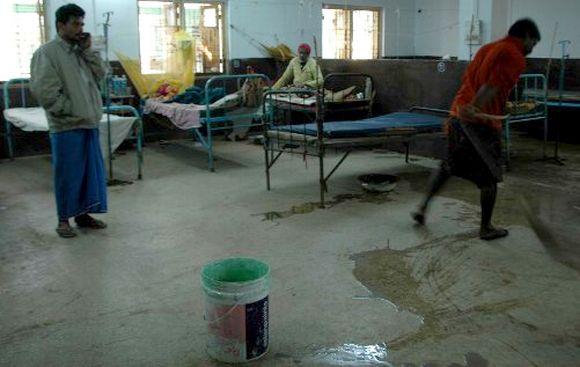
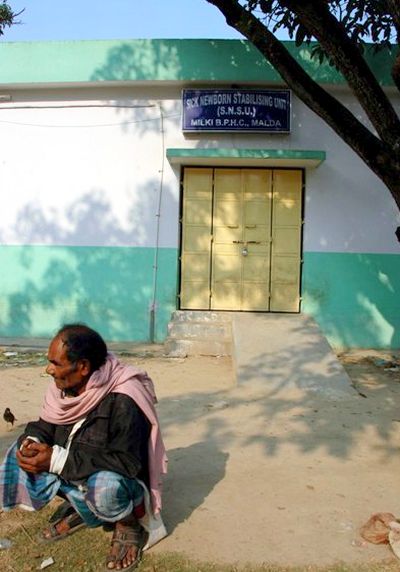
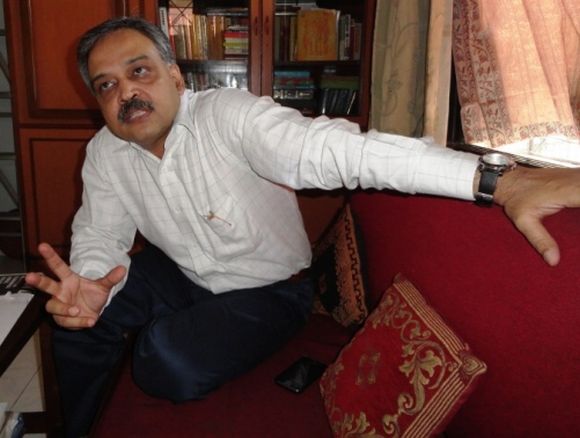
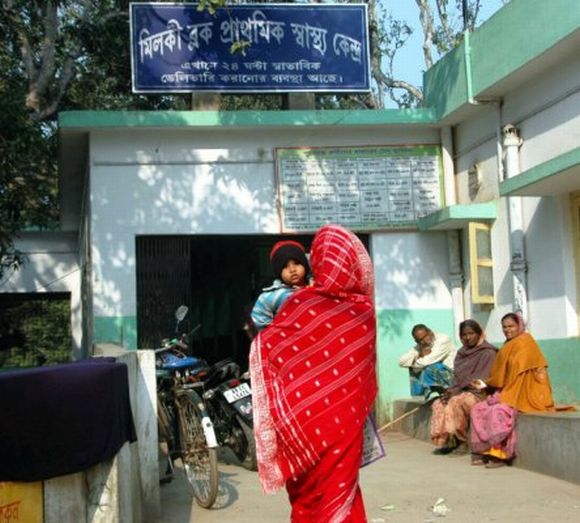
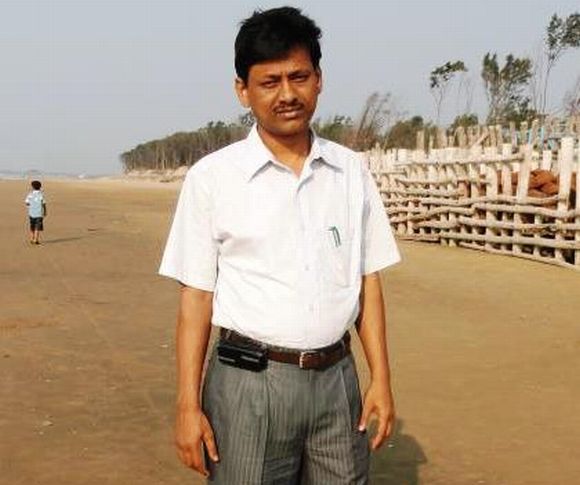
article